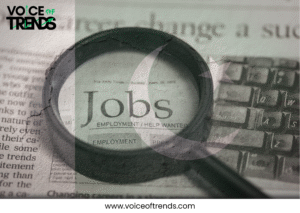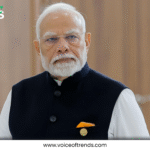Table of Contents
ToggleWhat It Means for You
On June 16, 2025, petrol prices in Pakistan increased by Rs. 2.4.8 per liter, bringing the new rate to a stunning Rs. 258.43 per liter. Additionally, the cost of diesel has also gone up by Rs. 5.7.95, reaching Rs. 262.59 per liter. These increases, effective immediately, have sparked wide concern among commuters, businesses, and homeowners. But what’s the reason for this increase, and how will it affect diurnal life? Let’s break it down.
Why the Price Hike?
The recent surge in fuel prices is tied to a combination of global and domestic factors:
- Global Oil Market Volatility: The ongoing Iran-Israel conflict has shaken international oil markets, driving up crude oil prices. With Brent crude and WTI crude showing fluctuations, the ripple effect has hit importing nations like Pakistan hard.
- Rupee-Dollar Exchange Rate: Due to Pakistan’s dependence on oil imports, any depreciation of the Pakistani rupee against the US dollar leads to a rise in the cost of acquiring crude oil. This currency pressure directly translates into higher prices at the pump.
- OPEC+ Production Decisions: Recent OPEC+ talks on increasing production have created uncertainty in global oil supply, leading to price volatility. While some believe that increasing production could stabilize prices, the immediate effect is upward pressure.
Impact on Consumers and the Economy
The Rs. 4.8 per litre hike in petrol and Rs. 7.95 increase in diesel prices will have far-reaching consequences:
- Commuters and Two-Wheeler Users: Millions of Pakistanis rely on motorbikes and cars for their daily commute, and this increase means higher travel costs. The cost of a full tank is now considerably higher, squeezing household budgets.
- Rising Transport and Food Prices: Diesel powers much of Pakistan’s transport and logistics sector. The Rs7.95 per litre hike in diesel is likely to increase the cost of transporting goods, leading to higher prices for food and groceries.
- Inflationary Pressure: With fuel prices already a major driver of inflation, this increase could further weigh on Pakistan’s economy. Companies may increase prices to cover rising operating expenses, potentially driving inflation upward.
- Public Sentiment:Social media platforms are abuzz with frustration, with many calling the hike a “war on the poor”. The timing of the hike, coupled with rising electricity and gas prices, has fuelled public discontent.
Comparing Regional Prices
Unlike India, where petrol prices vary significantly by state (e.g., Rs 94.72 in Delhi and Rs 104.21 in Mumbai as of June 2025), fuel prices in Pakistan are similar but are heavily influenced by global trends and government policies. The new rupee rate for petrol in Pakistan is Rs 258.43 per liter, significantly higher than in India, reflecting differences in taxes and import dependence.
What Can Consumers Do?
While fuel price hikes are largely beyond individual control, here are some practical tips to cope:
- Carpool or Use Public Transport: Sharing rides or opting for public transport can reduce fuel expenses.
- Optimise Vehicle Use: Regular vehicle maintenance, such as checking tire pressure and avoiding idling, can improve fuel efficiency.
- Explore Alternatives: For short distances, consider walking, cycling, or using electric scooters to cut down on fuel costs.
- Budget Adjustments: Reassess household budgets to accommodate rising fuel and related expenses.
Looking Ahead: A Bigger Hike on the Horizon?
Analysts have warned that this could be a precursor to even bigger price increases starting July 1, 2025, driven by a potential rise in global oil prices and the introduction of a new carbon levy on petrol. With global tensions and economic pressures showing no signs of easing, consumers should brace for further challenges.
Final Thoughts
The increase in the price of petrol by Rs 4.8 per litre to Rs 258.43 and diesel by Rs 7.95 to Rs 262.59 are more than just numbers – they are a wake-up call for Pakistan’s economy and its people. As global oil markets remain volatile and domestic policies add to the burden, the ripple effects will touch every aspect of daily life. Staying informed and adapting to these changes will be key to navigating these difficult times.
Have you felt the pinch of this price hike? Share your thoughts or tips for managing fuel costs in the comments below!




















